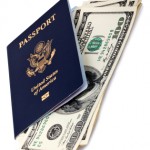
In this technologically advanced age, people are increasingly making use of debit and credit cards to take care of travel expenses instead of relying on traveler’s cheques. They have declined more than traditional checks. With greater ease of access and security to electronic money, traveler’s cheques no longer provide the same ease and security they once did, hence their decline.
While their use may be declining, traveler’s cheques are by no means extinct. The reason for this is that there are times when nothing but cash will do and traveler’s cheques are the only answer.
Traveler Cheques Background
A traveler’s cheque is the same as carrying cash that is protected in case of theft. If the cheques are stolen before they are used, they will be refunded. However, buying these cheques means that you have to pay a certain fee above and beyond the face value of the cheques and at times, another fee is deducted when they are cashed.
Traveler’s cheques can easily be bought at banks, credit unions and traveler’s cheque companies, but you can’t do it online. You must show up in person to purchase them. Normally, there is a 2% fee on the amount of the cheques purchased and just like paper cash, they can be purchased in different denominations. They are available in different currencies like US dollars, Canadian dollars, Japanese yen, British pounds and European euros. Usually, people prefer to buy them in the currency of the country they are going to, so they won’t have to worry about converting them to the local currency.
Traveler’s cheques were very popular until the 1990s and considered to be the safest way of carrying currency when traveling. This was due to their ability to be replaced in case you lost them or had your pocket picked. As credit cards and ATM machines started to become more easily accessible, the need to carry traveler’s cheques started to decrease. Credit cards now can be used almost anywhere on the planet and ATM cards from your home country allow you to get the currency of the country you are visiting. Since the same credit card or ATM card that one uses at home can be used almost anywhere in the world, they are more convenient to use than traveler’s cheques. There is no need to go to the bank to buy them in person each time you travel, and they can be cancelled if stolen or lost.
Benefits & Drawbacks of Traveler’s Cheques
At times, when you can’t find a working ATM and the merchant won’t take your credit card, or you arrive at your destination to find the exchange bureau closed, nothing but cash will do. Traveler’s cheques are ideal as a backup because they are more secure than cash as they can usually be replaced within 24 hours if the need arises, and they’re just as handy as cash.
The problem with traveler’s cheques is that you don’t get as good an exchange rate as you do with a credit card. Additionally, only a limited number of merchants are willing to take cheques these days. Also, there are the commissions and conversion fees for buying and cashing the cheques. Some of the fees can be avoided if the cheques are cashed at the issuing bank overseas. Also, they are really inconvenient to carry in a wallet as they tend to be quite bulky if you have to carry a large amount.
Now companies are coming up with new ways of providing the availability of cash with the security and conveniences of a card. Visa and Travelex have come up with travel cards that are prepaid like traveler’s cheques, but work like credit cards for buying or using the ATM. These travel cards also give better exchange rates, but just like traveler’s cheques, they do come with a lot of initial fees.
Benefits & Drawbacks of Credit Cards
Credit cards are great for paying major bills like hotel, airline tickets, renting cars or paying for meals at restaurants. Their biggest advantage when used overseas is that the currency is exchanged at interbank exchange rates which are usually the best possible rate you can get. Even though most currency exchanges come with fees for credit card issuers, they are normally lower than the fees you would have to pay to cash traveler’s cheques or convert to local currency at the money exchange bureau. There are even a few cards that do not charge any foreign transaction fees.
The main disadvantage of credit cards is that not all of the restaurants and stores abroad may accept them. While credit cards do allow you to get cash advances, they will be subject to the various charges the finance company imposes, and these add up rather fast.
The bottom line is that no single method of carrying money is ideal for every situation you may encounter when traveling overseas. Each method comes with its own set of positive and negative points, and while the use of traveler’s cheques may be on a decline, there are some situations where they serve your purpose best.
To be safe it is best to select a combination of two to three travel money options. Before settling on which ones to choose, call your bank and inquire about the various transaction fees, currency conversion charges and any additional fees. Then proceed to select the options that serve your personal needs the best.